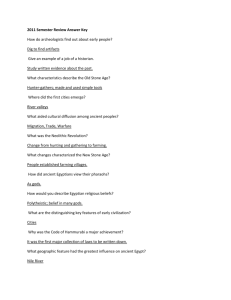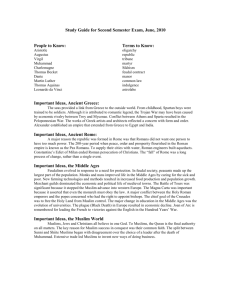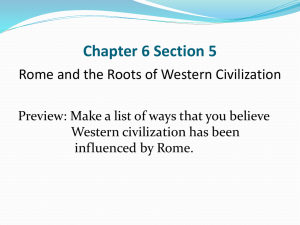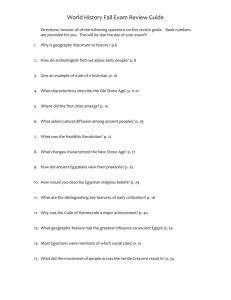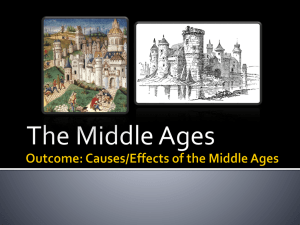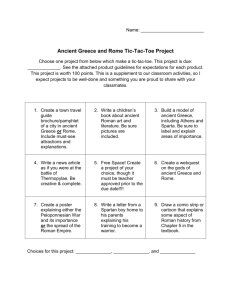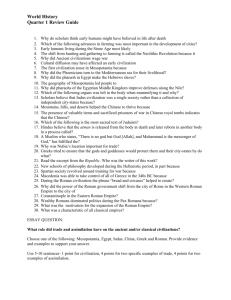WCIV-H Intro Unit: Study Guide
advertisement
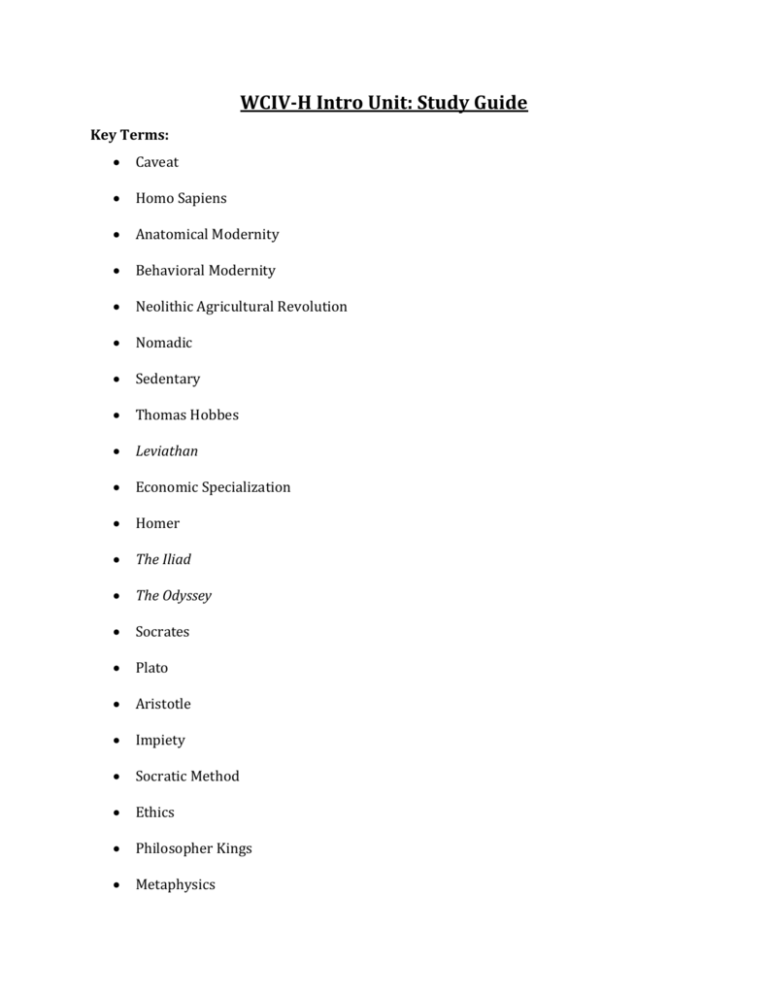
WCIV-H Intro Unit: Study Guide Key Terms: Caveat Homo Sapiens Anatomical Modernity Behavioral Modernity Neolithic Agricultural Revolution Nomadic Sedentary Thomas Hobbes Leviathan Economic Specialization Homer The Iliad The Odyssey Socrates Plato Aristotle Impiety Socratic Method Ethics Philosopher Kings Metaphysics Logic Virtue Athenian Democracy Oligarchy Dictatorship Democratic Government Authoritarian Government The Allegory of the Cave Pericles’ Funeral Oration The Myth of Sisyphus Ozymandius Roman Aqueducts Roman Republic Cincinnatus Roman Empire Julius Caesar Augustus Constantine Edict of Milan Council of Nicaea Edict of Thessalonica Feudalism Peasants The Church Thomas Aquinas Aristotelian Logic Magna Carta Clovis Charlemagne “Holy Roman Emperor” Social Mobility The Great Schism Council of Constance The Black Death Hundred Years’ War Joan of Arc The Crusades Pope Urban II Reconquista Spanish Inquisition Cultural Diffusion Concepts: Know the approximate dates of o Big Bang o Formation of the Earth o Life appearing on Earth o Anatomical Modernity o Behavioral Modernity o Neolithic Agricultural Revolution o Ancient Greece o Roman Republic o Roman Empire o The Middle Ages The Effects of the Neolithic Agricultural Revolution Differing attitudes in Athens and Sparta The philosophical importance of Platos’ Allegory of the Cave The theme of the poem Ozymandius The theme of Pericles’ Funeral Oration The major contributions of Ancient Greece to Western Civilization The Types of Government Continuum The Fall of Rome and the Middle Ages (causation) The ways in which Rome built upon Greek civilization The significance of the transition from the Roman Republic to the Roman Empire The importance of Rome to the Rise of Christianity The Feudal System and Social Mobility The role of the Church in the Middle Ages The Great Schism and the Church’s reputation The Black Death and the Feudal Society The Hundred Years’ War’s effect on feudalism and political power The Crusades, religious conflict, and cultural diffusion Big Questions 1. Was the Neolithic Agricultural Revolution the most important event in human history? Explain. 2. Describe the political and philosophical contributions of Ancient Greece. In what ways did the Greeks lay the foundation for Western Civilization? 3. In what ways did Rome model itself after Greece? How was it different? 4. Explain how Rome caused the death of democracy. Why is this important to the history of Western Civilization? 5. How did Christianity spread throughout Europe, and how did this lead to the Middle Ages? 6. What crises (3) in the Later Middle Ages led to the unraveling of the Feudal System? Be sure to focus on significance. 7. How did the Crusades contribute to the end of the Middle Ages and the rebirth of "high civilization"?
